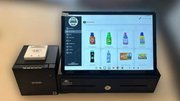Article
Tracking customers via cell phones: Good marketing or privacy invasion?
Two malls halted testing the new technology after a U.S. senator said it invades consumer privacy.

December 1, 2011
Two American malls halted testing Wednesday on a new technology that tracks customer location via cell phone signals, after a U.S. senator said it invades consumer privacy.
Promenade Temecula in Temecula, Calif., and Short Pump Town Center in Richmond, Va., began using Footpath technology, which is already in use by retailers in England, on Black Friday and had planned to test it through New Year's. Both malls suspended the trial, however, after Sen. Chuck Schumer (D-NY) said at a press conference Sunday that the malls should have given shoppers the choice to opt-in, instead of the choice to opt-out, which they could only do by turning their cell phones off.
How it works
Designed by Path Intelligence, Footpath uses monitoring units distributed throughout the retail environment to sense the movement of customers by triangulation. It then runs the data through analytics, and sends it to retailers through a secure website.
The technology, according to Path CEO Sharon Biggar, can help retailers learn their customers' needs, which will ultimately boost revenue. The data collected could help malls improve the mix of retail units to make their premises more attractive to customers. For example, the analysis may reveal that the shopping center would benefit from the inclusion of a bookstore.
The info could also help retailers decide when and where to deploy more staff, or help them improve store design by obtaining a better understanding of how people flow throughout the retail environment. More important, according to the Footpath website, is how the aggregated, anonymous information could help retailers reach the kind of audience they want to target with marketing and advertising.
Protecting consumer privacy
Although the two American malls posted signs telling customers about the tracking, there was no way for them to "opt out" without turning off their phones.
"A shopper's personal cell phone should not be used by a third party as a tracking device by retailers who are seeking to determine holiday shopping patterns," Sen. Schumer said at the press conference. "Personal cell phones are just that — personal. If retailers want to tap into your phone to see what your shopping patterns are, they can ask you for your permission to do so."
Path claims that it does not intercept any personal information, including mobile phone numbers.
"We do not detect any personal information," Biggar said. "We change all of the data that we detect so that it is not possible to access our database and link it to another source where individuals could be identified. We never reveal data at an individual level."
Still, shoppers should be given the choice, according to Jason Goldberg, vice president of strategy and customer experience with CrossView, a provider of cross-channel commerce solutions to retailers.
"History has clearly shown that Americans are more than willing to voluntarily trade some of their private information in exchange for utility. One only needs to look at the huge utilization of Google search or Facebook to realize that," he said.
The real question, Goldberg said, is what is the appropriate way to be sensitive to those privacy concerns.
"Is it to require an overt opt-in as is typically the case with retail affinity programs?" he said. "Or, is it sufficient to simply clearly inform consumers and offer a convenient opt-out?"
Biggar said the company asks all of its clients to put up signage letting shoppers know that the system is in operation.
"Opt-out data can provide the best data in a variety of applications and with all of the protections that we put in place shopper privacy can be, and is, protected," she said.
Although Footpath has been in use in England since 2008, most British shoppers were never aware that retailers had been tracking them until this week when Americans began questioning the ethics of the technology, according to the Daily Mail.
A compromise may be the way to go, according to Goldberg, who supports Sen. Schumer's opt-in idea. He admits, however, that getting customers to volunteer for the service may be challenging but is doable if retailers offer compelling value propositions.
"In the case of micro-geolocation that won't be hard to do," he said. "Consumers have often expressed dissatisfaction with way-finding and finding products during their shopping trips, and technologies like Footpath have the ability to improve those experiences."
Biggar said preventing retailers to user her technology puts them at a disadvantage with online retailers, who are able to track buying habits.
"Our firm exists to help offline retailers begin to compete with online retailers," she said. "Online retailers do not require you to opt-in to being tracked. Rather they observe/track behavior from the moment a shopper enters an online website. We are simply seeking to create a level playing field for offline retailers, and believe you can do so whilst simultaneously protecting the privacy of shoppers."
Offline retail today is struggling in Europe, where online sales have grown by 215 percent over the last four years, while offline sales grew by only 4 percent, Biggar said.
"The retail industry is one of the largest employers in the U.S. and to ensure that employment stays high offline retailers need to find some way to be as competitive as online retailers," she said. "Online retailers know far more about me as a shopper than offline retailers do, even those which employ our services. They also detect all of my behavior on their site even if I don't log in to the site and give explicit permission for them to track me."
In the meantime, Sen. Schumer has called on the Federal Trade Commission to examine how the technology fits in with existing consumer privacy regulations and whether "our law and policy needs to be updated to address the new kinds of monitoring that innovative technologies allow."
Biggar said she hopes to talk with Sen. Schumer about his issues with the technology.
(Photo by JD Harvill.)
 ChatGPT
ChatGPT Grok
Grok Perplexity
Perplexity Claude
Claude




